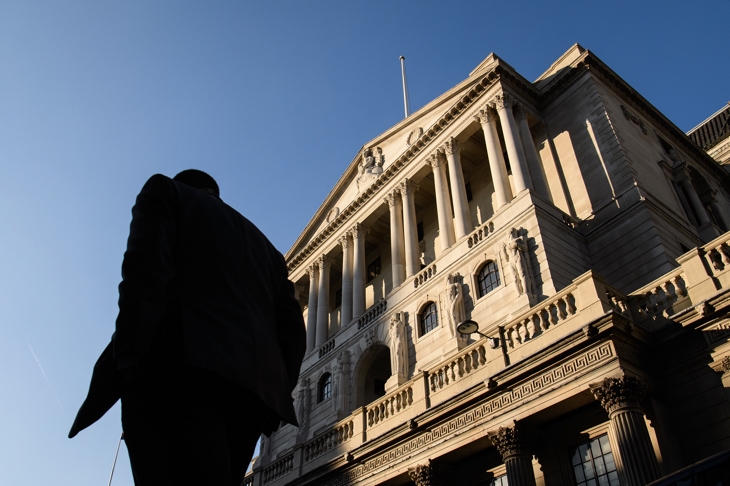House prices are in freefall. Unemployment is rising relentlessly. The pound is plunging on the markets, and companies are re-locating to Paris and Frankfurt in droves. In the parallel universe Mark Carney increasingly seems to live in, that is a pretty accurate description of the British economy. In this universe, however, the picture is very different. The economy is doing just fine – and that is making it increasingly hard to understand why interest rates are being held at ‘emergency’ levels to cope with the ‘catastrophe’ of leaving the European Union.
At a meeting of the Monetary Policy Committee yesterday, the Bank left rates on hold at 0.25 percent, while hinting that might finally go up next month. In the aftermath of the referendum, it cut rates down to that level, to cope with the shock of leaving. It was a perfectly reasonable decision to make. No major economy had ever left the EU before, and no one had any real idea what kind of impact it might have. Certainly plenty of businesses were very anxious, and collapsing confidence can very quickly hit output. It would have been reckless for the Bank not to respond.
But more than a year has now passed. And what impact has Brexit made? Remarkably little. The country has carried on being what is has been for a long-time – a largely debt-fuelled, consumer-led economy, dominated by retailing and property speculation, with mediocre productivity and poor wage growth, but with lots of bright entrepreneurs, and with employment rates and pockets of wealth that are as good as any in the world. In other words, a mixed bag – but neither much better or worse for leaving the EU.
In the last few weeks, it has even become clear we may well have a ‘no deal’ hard Brexit, largely because the EU won’t make any compromises with us. That is far worse than anyone expected fifteen months ago. And yet even that doesn’t seem to have had much impact on the economy. It has sailed on much as before. Businesses are quietly preparing to revert to WTO trade rules, and working out that some very minor tariffs don’t make much difference. Sure, a few banks will switch some staff to Frankfurt, and some orders will be lost. But not enough to substantially hit growth. Even the pound, which the Remainers told us would be trashed, is recovering: it has hit a one-year-high against the dollar, and is only weak against the euro (but that is true of every global currency).
So why are rates still at emergency, post-Brexit levels? Because the Bank is still inhabiting a Brexit parallel universe, where growth is threatened, and the economy is only a moment away from collapse. It can stay there for another month, or perhaps two, but it can’t stay there forever. Sooner or later, it will have to recognise that that is no emergency, and that ultra-low interest rates only risk fuelling borrowing even further. It might be October, or it might be November, but rates should certainly go back to 0.5 percent before Christmas – and if they don’t the Bank will have made a major mistake.






Comments